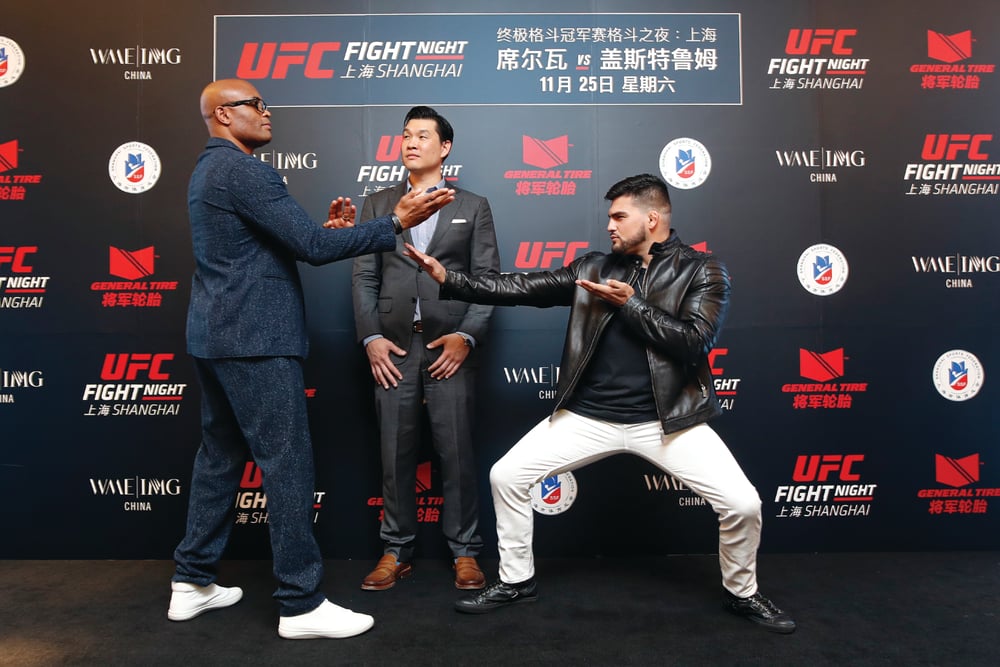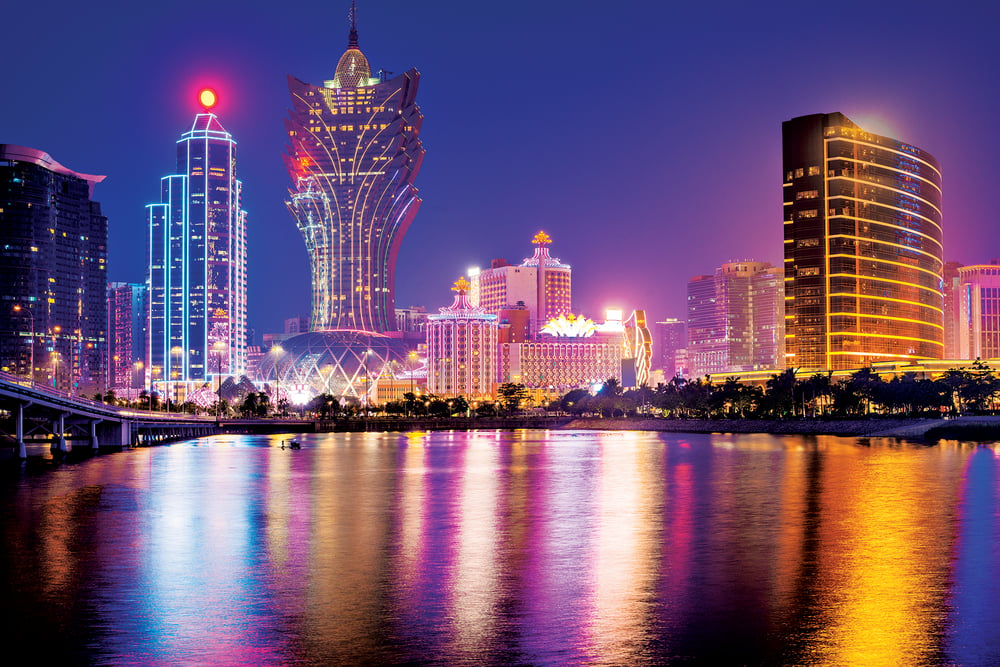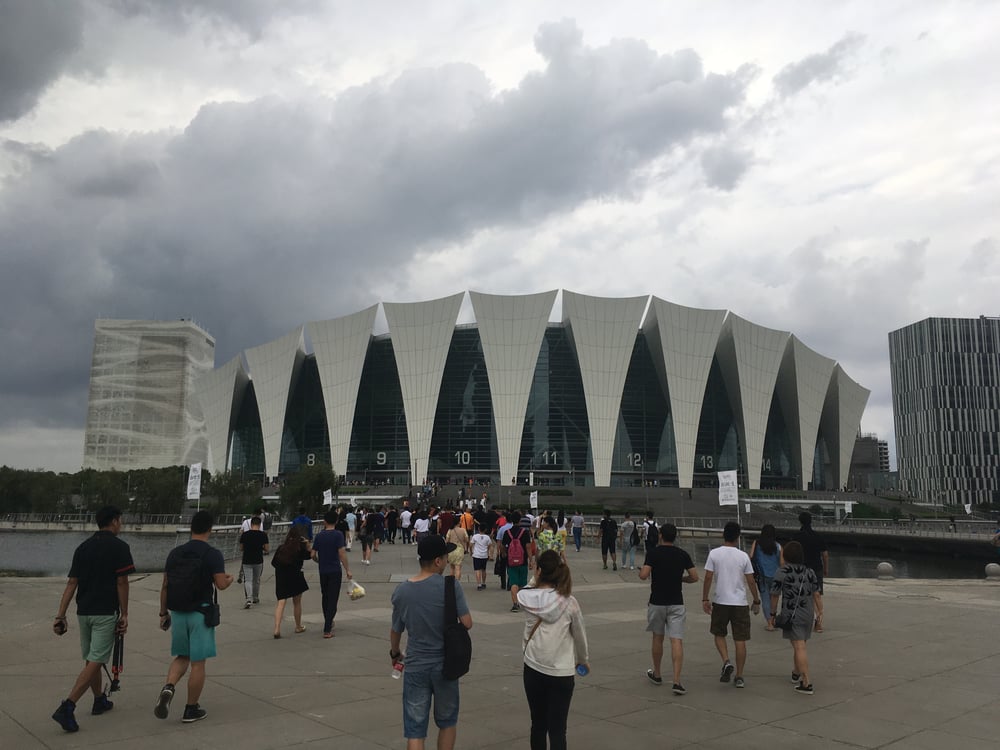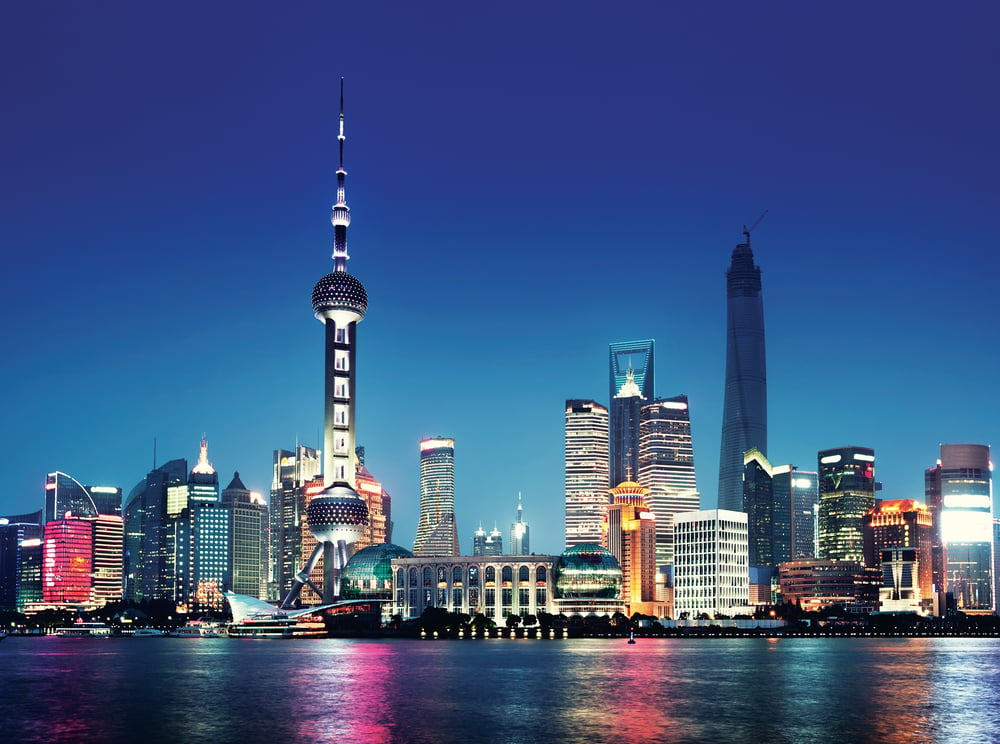
Issue 161
December 2017
It’s been a long time coming, but MMA is finally starting to catch on China. What will success in the world’s largest economy mean for the sport?
MMA has been able to hang its hat on its tag as ‘the fastest growing sport in the world’ for more than 10 years. It was hardly ‘fake news’ either, as gyms and promotions started sprouting up all over the globe – from Canada to Kazakhstan – and the UFC took the Octagon across five continents.
There is one major destination left to cross off the list, but that’s all set to change this year. The local scene is growing, ONE Championship has begun a successful push into major cities and the UFC has booked a massive arena in the most populous city in the world. China is ready for a mixed martial arts explosion.
The UFC estimates a third of its fanbase is in Asia, so it’s a market it wants to make a major dent in. With a population of almost 1.4 billion, you have to try and make a dent in China if you want a foothold in Asia. The world’s leading promotion has tried to make inroads there for a few years, but has not had the instant success it enjoyed in places like the UK, Australia and Brazil in the last decade.
Despite a Chinese season of The Ultimate Fighter, a handful of athletes on the roster and a base of operations in Beijing, the Octagon has not become a ubiquitous part of the sporting landscape yet. There have been three successful events in Macao, but they were all at the Cotai Arena, part of an American-owned casino, The Venetian. ‘The Las Vegas of Asia’ is also a former European colony with its own regulations. You might expect the UFC to thrive there, but it is more of a ‘destination’ spot, a world away from the super cities that are home to tens of millions of people across the country. Building a fanbase on the mainland is key to prosperity and sustained success.

That’s what’s coming next. The cultivation of the Chinese fanbase has kicked up a gear since 2014, particularly in the last 18 months. A five-year deal was signed with PPTV, a major sports streaming platform that added live Octagon events to a portfolio that includes English Premier League soccer. Kevin Chang, vice president of UFC Asia, explains the right environment has been created to make a splash in the biggest city in China, and the world, with UFC Fight Night Shanghai on November 25th.
“It was important that we did everything the right way,” he says. “From securing the necessary permits, to developing the right marketing mix and plan, to the timing of our announcements, I think that the results speak for themselves. We follow in the footsteps of other mainstream sports properties who have successfully brought their events to China, but if not properly planned and executed, the story can be very different.”

That event at the Mercedes-Benz Arena looks set to be a huge success, hot on the heels of a big push into the mainland from ONE Championship. The Singapore-based promotion has stepped up its presence in China this year with its own streaming MMA GOES TO CHINA partnership on Tencent and a huge show in Shanghai that was broadcast on state TV.
Its CEO of international, Victor Cui, has also relocated and has first-hand experience of how the public has embraced MMA. He explains: “We’re still in the early days in terms of the awareness of the sport, but there has been a really strong appetite for ONE Championship. Our events have been live-streamed with really strong viewing figures, so we have a large fanbase.
“I moved to Shanghai in December, so I’ve been really able to keep my finger on the pulse of the popularity and what people are interested in. I’m particularly surprised about how high the awareness is about the event, because it’s a difficult city to make a dent in. There are 25 million people in Shanghai alone.”

ONE had been to China before. It had visited Macao, Changsha, Anhui, Guangzhou and even the capital, Beijing, but its September show was a step up from what had come before. The event was at Shanghai’s 18,000-seater Oriental Sports Center, and it was full of young fans with money to spend.
Cui says it was a milestone for the promotion and admits that he was a little surprised by the amount of attention it generated. “Beijing is the capital, but Shanghai has a sexiness to it,” he says.
“What’s exciting really has been the overwhelming response from fans and the media for our first event. This has been bigger than any other city we’ve been to and there’s kind of a buzz.
“We did a faceoff the other day and I was expecting 10 major media, but we had 150 media show up. It’s not a press conference, it’s me standing with the fighters doing a picture. I was swamped for two hours after by everyone from CCTV – which is the government-owned, number one national television channel that reaches across the entire nation – and SMG, which is the number two. They did a feature on the ring. It was really cool, mainstream media support. That, to me, was surprising – the level of support that we’re already having.”

The show itself was put together to appeal to the local market and seemed to succeed. The crowd was not raucous like you might expect from Montreal, Dublin or Rio de Janeiro, but it did make noise for spectacular knockouts by Asian stars. They also bought into a marquee title-fight main event featuring Ben Askren. The most noise, however, was reserved for a quintet of victorious Chinese athletes.
Though the likes of Ma Hao Bin, Ze Hao Zhang and Miao Jie aren’t household names yet and only have a few fights on their record, Cui sees their big-stage exposure as an essential part of future and sustained success in China.
“We are looking to build local heroes so none of these guys are superstars yet, and that’s our mandate across Asia – trying to find the next star,” he says. “Having that local relevance is critical, but we still want to make sure we have that global appeal, which is why we put Ben Askren in our title fight on the card.”

The UFC has planned an even bigger attraction by matching Anderson Silva with Kelvin Gastelum to anchor UFC Fight Night 122. At the time of writing, there were no other confirmed bouts, but you can expect some Chinese recruits to give the home fans something to shout about.
Chief among them should be Li Jingliang, who has come into his own as a UFC athlete in the past 18 months. ‘The Leech’ is on a three-fight winning streak and has five Octagon victories. Guan Wang – a featherweight with a 16-1-1 record from the Art of War and Ru promotions – was signed earlier this year and would be an obvious choice to join him.
“Along with our international stars, UFC Fight Night Shanghai will showcase the very best homegrown MMA talent in China,” says Chang. “A few of our Chinese fighters are achieving higher levels of recognition than before, including interviews by top journalists, blue-chip sponsorship opportunities and crossover appearances. They are putting on performances that are as good as any fighter in the UFC so we are encouraged with the direction of talent.”

It should come as no surprise that big promotions are expecting big things from their expansion into China.
“China is the home and birthplace of martial arts, and I want to showcase the beauty of Chinese athletes and martial arts on the global stage,” says Chatri Sityodtong, ONE chairman and CEO. “The Chinese represent some of the best martial artists in the world and it’s time that they had a global platform to show how great China really is. Asia has been home to martial arts for 5,000 years.
“Asians are the very best in the world at martial arts and this is what ONE Championship wants to showcase to the viewers. We have movie heroes like Jackie Chan, Bruce Lee, Jet Li and Donnie Yen, so let us show the real martial arts heroes to the audience.”
But it’s not just traditional forms of combat and action stars of the silver screen that resonate with the public over there. A real interest in the sport seems to have developed in the past few years, and those fans should naturally gravitate towards the top promotions.
“Over time, our ratings and online viewership have grown tremendously, as has our social following,” he adds. “People now understand the difference between local and regional competition versus the international leader in MMA, the UFC. We are authentic sport at its highest level.
“Our aim is to become a mainstream sport and global iconic brand and we feel that the appetite is there with huge potential for growth. This is not only measured by number of events – we are the first to admit that we will not hold the record for most events in China every year – but rather by growing a loyal fanbase developed over the past 10 years.”

Shows in Shanghai could be just the tip of the iceberg. ONE Championship has already announced its intention to promote six shows in Beijing and Shanghai next year on the back of its blockbuster event in September. It also wants to give its roster of 90 Chinese fighters an opportunity to compete and be exposed right across Asia.
The UFC’s effort hasn’t even taken place yet and it’s also already looking to a bright future developing its reach across a market that could end up being one of its most lucrative. While it may not match ONE in terms of volume of shows, it’s likely the UFC will continue to make big statements in the biggest cities on the planet.
“We are currently evaluating our options, but there is a good chance we will be back in China again next year,” says Chang. “We expect China to be a regular stop on our calendar of Asia-based events. It’s such a big and diverse place, and given the tremendous response for our first show, we aim to bring the excitement of the UFC to our fans across the country… Beijing, like Shanghai, is one of the most important cities in the country. It is a big priority for us to stage an event there at some point in the near future.”

So, the stage is set. The MMA world has its eyes on blowing up in China – and it could blow up fast. When the Chinese get their teeth into something, they don’t mess around. Just look at soccer. Since 2014, the game’s profile has soared, with billions of dollars spent on bringing marquee players to China and the acquisition of foreign clubs in England, France, Italy and Spain. Combat has been in the country’s DNA for millennia, so imagine the results if similar investment happens.
“The scale and opportunity in China is critical, which is why all MNCs have headquarters in China,” says Cui. “I think the lucky thing about our sport is that we don’t need to teach anyone in China about two people competing at the elite levels of martial arts.
“I don’t think it’s going to take that long [to go mainstream]. I think in China, you’re going to see some really rapid growth in the sport. Of all the markets in Asia, the fastest growing sports market is in China. It’s the only country where billions of dollars are being spent on the sports industry.”
If massive checks are written, then we may not even have to predict how long it will take for MMA to take over in China. We might soon be predicting how long it will take for China to take over MMA.
...









